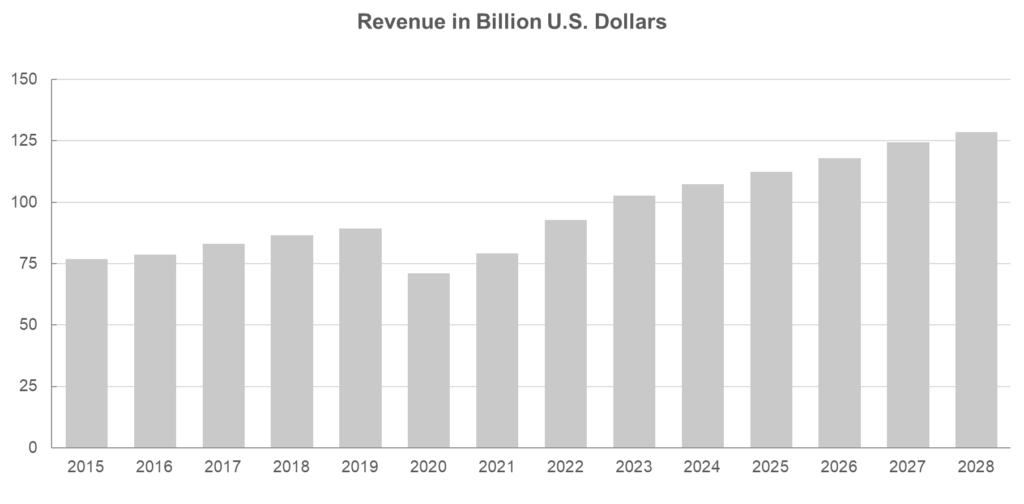Making Black More Beautiful: Black Beauty In Cosmetics
Cosmetic products have become an integral part of humans. With an increased consciousness of aesthetics, the cosmetic industry is booming daily. The representation of black beauty in cosmetics accounts for many customers. However, despite the vast possibility in the market, black brands and their product range are quite small compared to the anticipation. Thus, it leaves a void that needs to be plugged in and an industry that has the potential to grow exponentially if ticked correctly. Now, they have grown beyond just skincare or hyperpigmentation. Cosmetic products are focusing on developing their product line in categories that received less attention earlier.
The cosmetics market is currently focusing on the diversity aspect of the human population because that’s the untapped market. Today, beauty products cater to and reach out to every ethnicity, demography, skin tone type, and region. Companies are putting immense research and investment into rolling out a business model to increase their revenue and profits. For some time now, the beauty industry has realized the importance of the representation of black beauty in cosmetics.
Industry experts and marketers acknowledge the changing dynamics of black beauty representation in cosmetics.
Importance Of Black Representation In Beauty Industry Workplace
- Better Serving Black Consumers: Black consumers are responsible for 11.1 percent of total beauty spending, yet Black representation in the beauty industry lags far behind Black representation in the share of beauty spending and the population. Black beauty companies only have 2.5% of the revenue of the overall beauty market. Higher Black representation at all levels in beauty companies will likely lead to better hair care, skin care, and cosmetics products and better business. Black people know better about their skin and hair quality. Thus, greater representation in manufacturing will help tap into their experience with their bodies. Eventually, improving the quality aspect.
- Workplace Racial Inequity: The B beauty industry is a $2.6 billion opportunity. Better serving Black consumers and supporting Black beauty brands could increase equity across the entire beauty industry—for shoppers, beauty houses, retailers, investors, and entrepreneurs.
- Promoting Diversity and Inclusivity: The lack of black representation in the beauty industry workplace makes it less likely that products aimed at black consumers will be stocked and adequately promoted in stores and less likely that store associates will represent the diversity of their communities. Promoting diversity and inclusivity in the workplace can help create a more equitable beauty market.
- Historical Exclusion: The beauty industry has historically ignored black women, and black entrepreneurs have been excluded from receiving information about high-potential opportunities. Increasing representation in the industry, from sales associates to the C-suite level, can help create a more equitable beauty market.
Importance Of Representation And Self-expression In Black Community
- Empowerment and Self-esteem: Representation allows individuals to see themselves reflected in various aspects of society, including the beauty industry. When Black individuals see people who look like them represented positively, it can boost their self-esteem and empower them to embrace their unique beauty
- Breaking Beauty Standards: Historically, beauty standards have been heavily influenced by Eurocentric ideals, often excluding Black skin tones and features. Representation challenges these narrow standards and promotes a more inclusive definition of beauty. It helps to break down stereotypes and encourages acceptance and celebration of diverse beauty
- Cultural Pride and Identity: Representation in the beauty industry allows Black individuals to express their cultural heritage and embrace their identity. It validates their experiences, traditions, and unique beauty practices, fostering a sense of pride and connection to their roots
- Economic Empowerment: The Black community represents a significant consumer base in the beauty industry. Brands can tap into this market by catering to their needs and providing representation. This can create economic opportunities for Black-owned businesses. Supporting and investing in Black-owned beauty brands can contribute to the overall economic empowerment of the community.
- Social Change and Inclusivity: Representation in the beauty industry is a step towards a more inclusive and equitable society. It challenges systemic racism and promotes diversity. This promotion of diversity extends beyond race and includes considerations of body size, gender identity, and more. It sends a message that everyone deserves to be seen, heard, and represented.
Black Beauty In Cosmetics: Overall Market
Currently, there are almost 1.2 billion black people globally. The global revenue in the ‘Cosmetics’ segment of the beauty & and personal care market was forecast to continuously increase between 2023 and 2028 by a total of 25.1 billion U.S. dollars. After the eighth consecutive increasing year, the indicator is estimated to reach 128.89 billion U.S. dollars and, therefore, a new peak in 2028.

Figure: Revenue of the Cosmetics Market Worldwide from 2015 to 2028
Challenges Faced: Black Beauty Consumers And Brands
- Improper Representation: The beauty industry has often overlooked and excluded Black women, with limited product options and shade ranges that cater to their needs. This lack of representation and inclusion has made it difficult for Black consumers to find products that work for them.
- Limited Product Availability: Black consumers often face challenges accessing quality beauty products that cater to their needs. They may struggle to find products formulated for skin tones, hair textures, and specific concerns.
- Inadequate Marketing Representation: The beauty industry has historically lacked diverse representation in its marketing campaigns, often featuring predominantly white models and influencers. This lack of representation can make Black consumers feel excluded and underrepresented.
- Barriers to Black-owned Brands: Black entrepreneurs in the beauty industry face unique challenges, including limited access to funding, resources, and distribution networks. This can make it difficult for Black-owned brands to gain visibility and compete.
- Consumer Concerns for Authenticity: Acquisitions of Black-owned and founded brands by larger companies have raised concerns among consumers about the authenticity and integrity of these brands. Maintaining trust and preserving Black-owned brands’ original vision and values can be challenging.
- Limited Beauty Journalism Representation: Beauty journalism often assumes a white readership, resulting in limited coverage and information about products and brands catering to Black women’s needs. This lack of representation in beauty media can further contribute to the challenges faced by Black consumers.
Current State Of Black Beauty In Cosmetics Industry
The current state of Black beauty in the cosmetics industry is a complex issue explored in various studies and initiatives. Here are some essential points:
- Black beauty brands have played an important role in representing and empowering Black people & their beauty. These brands showcase various models and influencers on their platforms, representing a broad spectrum of Black beauty.
- Black consumers feel a stronger connection to Black brands and appreciate their inclusivity
- Despite progress, Black consumers often face frustrations in finding quality beauty products that cater to their needs, and Black-owned brands face obstacles in making headway in the industry
- Increasing representation of black professionals at all levels in beauty companies can lead to better hair and beauty products for black consumers
Opportunities For The Black Beauty Industry
- Various Career Opportunities: The beauty industry offers various career options. These options include becoming a makeup artist, salon or spa owner, instructor, personal stylist, fashion show stylist, and more. The beauty industry offers opportunities for individuals to start their businesses. These opportunities include owning a salon, spa, or beauty retail store.
- High-paying Jobs: The beauty industry offers many high-paying jobs, including estheticians, makeup artists, hair stylists, and beauty bloggers/influencers. These jobs can provide a lucrative career path for individuals interested in the industry.
- Growth Potential: The beauty industry constantly evolves and expands, providing growth opportunities for innovative and ambitious individuals. The industry has learned from past challenges and is expected to experience significant growth in the future.
- Scholarships and Support: Organizations like the Beauty Changes Lives Foundation offer scholarships and support for students pursuing careers in the beauty industry. These opportunities can help individuals overcome financial barriers and achieve their career goals.
- Equity and Inclusion: Supporting Black beauty brands and better serving Black consumers can drive more significant equity across the beauty industry. There is a growing awareness of the importance of diversity and inclusivity in the industry. This awareness is creating opportunities for individuals and companies to contribute to this movement. Several laws allow the eradication of Black hair discrimination in the workplace, such as the CROWN Act, which facilitates the protection of hair texture and protective styles such as braids, locs, twists, and knots in the workplace and public schools.
Empowering Black-Owned Beauty Brands To Influence Beauty Industry Landscape
The realm of Black-owned beauty brands holds immense potential for reshaping the dynamics of the beauty industry. Here are several strategies through which they can effectively accomplish this:
- Harnessing the Surge in Demand for Inclusivity and Cultural Relevance: Embracing investment in black-owned personal care and cosmetics ventures offers a strategic path to leverage the escalating appetite for inclusive products that resonate with diverse cultures. Black beauty brands raise a median of $13 million in venture capital compared to $20 million in venture capital by non-black beauty brands.
- Cultivating a Haven of Inclusiveness: Many Black-owned beauty brands have emerged with a vision to establish an all-encompassing sanctuary. This sanctuary transcends the boundaries of conventional beauty norms. This pivotal step paves the way for other aspiring entrepreneurs. It fosters a milieu of diversity and inclusion within the industry.
- Filling Representation Gaps: An impactful approach that black-owned beauty brands can undertake is addressing the conspicuous lack of representation. Moreover, crafting products tailored to the specific requisites of black consumers captures market share and illuminates the landscape with the prominence of black-owned brands.
- Forging Alliances with Retailers: Collaborations between Black-owned beauty brands and retailers hold the potential to amplify visibility and accessibility. This synergy widens the sphere of exposure. It also enables retailers to better cater to the preferences of Black consumers. This, in turn, fosters equitability across the spectrum, encompassing shoppers, entrepreneurs, established beauty brands, retailers, and investors.
- Shattering Billion-dollar Barriers: Black-owned beauty brands are resolutely breaking through the billion-dollar thresholds despite the adversities of funding disparities. Additionally, these brands’ continual growth and triumph usher in a new era of space and opportunities for Black entrepreneurs and professionals within the sprawling expanse of the beauty industry.
How Do Cosmetic Companies Market To Black Women?
Cosmetic companies have adopted various strategies to engage with Black women consumers, although certain challenges and areas for enhancement persist.
- Enhanced Representation: Over recent years, a growing awareness of the necessity for heightened representation of Black women within the beauty industry has emerged. Some cosmetic companies are taking steps to include black women in their advertising initiatives. They are showcasing diverse hair textures, skin tones, and beauty aesthetics.
- Tailored Product Development: Cosmetic manufacturers are dedicating efforts to crafting products that cater specifically to the distinct requirements of black women. This entails broadening shade selections to encompass a wider spectrum of skin tones and formulating products for textured hair. It also involves addressing skincare concerns unique to black women, such as hyperpigmentation.
- Inclusivity in Marketing Endeavors: Brands actively strive for inclusivity in their marketing campaigns. They do so by prominently featuring black women and celebrating the essence of black beauty. However, it’s worth noting that ongoing progress must be made. Moreover, some skincare brands still predominantly emphasize white women in their promotional efforts.
- Endorsement of Black-owned Beauty Brands: Many consumers, including Black women, seek and endorse Black-owned beauty brands. These brands often prioritize addressing black women’s distinctive needs and aspirations. They present an array of products meticulously tailored to their preferences.
- Leveraging Social Media and Influencer Collaboration: Cosmetic enterprises capitalize on social media platforms like Instagram and YouTube to connect with Black women. 41% of Black consumers aged between 18-34 are using social media to discover new beauty products. Collaborations with influential black figures in the beauty domain enable these companies to showcase and endorse their offerings. Additionally, they leverage the sway of these individuals within the beauty community. Fenty Beauty by Rihana earned more than $72 million in the first month after its launch by social media and press exposure.
What Role Have Social Media Influencers Played In Promoting Black Beauty Products?
Social media influencers have played a significant role in promoting Black beauty products. Here’s how they have made an impact:
- Increased Visibility: Black beauty influencers have used social media platforms like Instagram, YouTube, and Twitter to showcase and celebrate black beauty. They have created content highlighting various black skin tones, hair textures, and beauty styles. This content challenges the traditional beauty standards that have often excluded black individuals.
- Product Recommendations and Reviews: Influencers like Jackie Aina and Tiara Willis have become trusted sources for product recommendations and reviews. These recommendations are specifically tailored to the needs of Black consumers. They provide insights into the effectiveness of various beauty products for darker skin tones. Additionally, they offer guidance on finding the right shades and formulations.
- Advocacy for Inclusivity: Black beauty influencers have been vocal advocates for inclusivity in the beauty industry. They have called out brands for their lack of diversity. They have pushed for more representation and shade ranges that cater to all skin tones. Their activism has helped raise awareness and drive change within the industry.
- Inspiration and Empowerment: Black beauty influencers serve as role models and sources of inspiration for many individuals. Also, they empower others to embrace their natural beauty and feel confident in their skin by sharing their personal stories, struggles, and triumphs. Their authenticity and relatability have resonated with audiences worldwide.
Beauty Products By Famous Black People
Highlighted Cosmetic Brands Founded by Prominent Black Individuals
The realm of cosmetic products boasts an array of offerings from renowned Black figures, each carving their distinctive path:
- Fenty Beauty by Rihanna: Rihanna’s Fenty Beauty brand has garnered acclaim for its inclusive lineup, which encompasses a diverse array of foundation shades, from 40 to more than 50 shades at present, and an assortment of makeup selections.
- Fashion Fair Cosmetics by Eunice Johnson: Eunice Johnson stands as the driving force behind Fashion Fair Cosmetics. This pioneering makeup line once held the distinction of being the largest Black-owned beauty enterprise on a global scale.
- Shani Darden Skin Care by Shani Darden: Shani Darden Skin Care emerges as a brand acknowledged for its skincare solutions tailored to address a spectrum of skin concerns, including those unique to Black and Brown skin tones.
- Klur by Lesley Thornton: Klur, a Black-owned beauty enterprise, focuses on creating clean and sustainable skincare products, contributing to a more conscious approach to beauty.
- Buttah Skin by Dorion Renaud: Buttah Skin shines a spotlight on specialized skincare offerings meticulously crafted to cater to melanin-rich skin.
- Juvia’s Place by Chichi Eburu: Juvia’s Place, a makeup brand, distinguishes itself by presenting vivid and intensely pigmented eyeshadow palettes, catering to a diverse range of skin tones.
- Uoma Beauty by Sharon Chuter: Uoma Beauty is a brand that embraces the essence of diversity. It offers an expansive spectrum of makeup products intended to suit many skin tones.
- Pat McGrath Labs by Pat McGrath: Pat McGrath Labs is a luxurious makeup brand. It is celebrated for its exceptional quality and innovative creations. It encompasses a wide assortment of foundation shades, ensuring inclusivity in beauty offerings.
Global Landscape Of Black Community
- Black Population in the United States: According to the U.S. Census Bureau, approximately 46.8 million people identify as Black in the United States. This includes individuals who identify as solely Black and those who identify as multiracial with Black heritage.
- Black Population Outside of the United States: The African diaspora refers to the worldwide collection of communities descended from Native Africans or people from Africa, predominantly in the Americas. Notably, around 200 million people of African descent live in the US, and many millions live in other parts of the world.
- Diversity within the Black Community: The concept of a unified, distinguishable “Black race” is socially constructed, and different societies apply different criteria regarding who is classified as Black. The Black community is diverse, encompassing individuals from various ethnic, cultural, and national backgrounds.
- Representation and Authentic Portrayal: There is a need for authentic representation of Black people in marketing, media, and other forms of expression. This includes recognizing harmful racial biases, understanding the cultural context of Black identity, and ensuring representation both on-screen and behind the scenes. Black consumers prefer Black-owned beauty brands and think they will provide better results than non-Black brands.
- Human Rights and Recognition: The United Nations has created the International Decade for People of African Descent, recognizing the distinct group of people of African descent and promoting and protecting their human rights.
- Civil Rights Movement Impact: The civil rights movement, including the “Black is Beautiful” movement, transformed attitudes toward beauty standards within Black communities. This movement emphasized the celebration and acceptance of Black beauty.
Conclusion
The market for black beauty in cosmetics is huge, backed by emotional demand. Thus, a manufacturer that can cater to the needs with quality, cost-effectiveness, and results can impact this open market with immense opportunities to offer. Also, studying the deep-rooted issue of colorism and skin tones, assimilating it with cultural references, and inviting black beauty to represent products can lead to untapped revenues. Moreover, beginning with small numbers of staff and including the community members in the manufacturing of the hub can do a lot more.
They understand their skin and requirements more than anyone. Stellarix can help you understand what and how to grow your business in the domain
Let's Take the Conversation Forward
Reach out to Stellarix experts for tailored solutions to streamline your operations and achieve
measurable business excellence.



